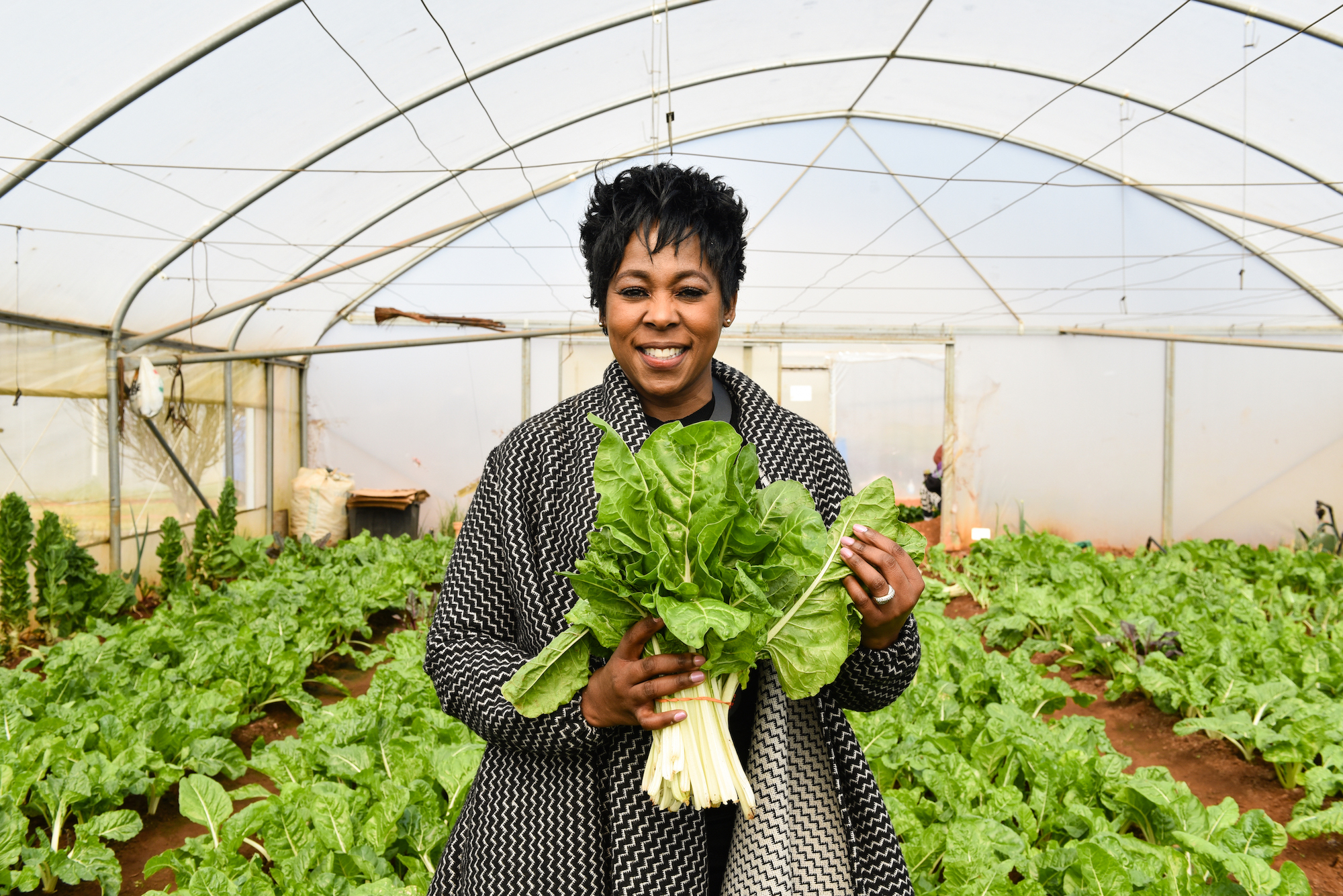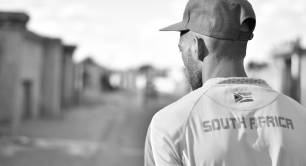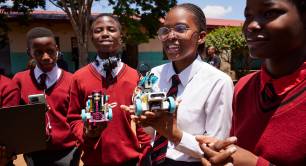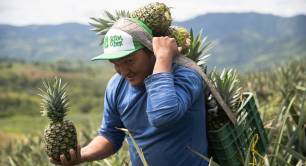South Africa’s SAB Foundation: Why 90% of its investees are still in business five years later
INVESTOR IN FOCUS: Africa’s award-winning catalytic investor SAB Foundation has an impressive record in sustaining early-stage impact businesses, viewed as too risky by many. The secret lies in how it supports entrepreneurs.
Catalytic capital is a hot topic – and on the African continent, SAB Foundation is the name to watch. The Johannesburg-based foundation, which has backed more than 6,400 early-stage social impact businesses to date, was named catalytic investor of the year in the inaugural Africa Impact Investment Awards in 2023. Some 90% of investees are still operating after five years, according to the foundation.
SAB Foundation is an independent trust, set up by South African Breweries (SAB), one of the world’s largest beer makers. The trust was created in 2010, as part of the South African government’s ‘Broad-Based Black Economic Empowerment’ scheme, which pushes businesses to help underprivileged people through employment, supply chains, ownership and more. It has invested €24m to date.
- Explore more in our multimedia feature: The business of boosting equality: South Africa’s mission to create decent jobs
SAB Foundation focuses in particular on under-served entrepreneurs, including women, youth, rural communities and people with disabilities. A key principle of the foundation’s work is long-term support, head of programmes Itumeleng Dhlamini told us; this typically starts when an enterprise at startup or seed stage is selected for a Social Innovation Award, which provides grant money and tailored business support. Awardees can then go on to access further support, including concessionary loans.
Dhlamini told us why business support also involves “dealing with the personal stuff”, how a “weird relationship” with money affects business acumen, and why agility and independence from the parent company matters. Read on for highlights from our conversation.
- Read our Impact 101: What is catalytic capital?
Pioneers Post: What is the mandate of SAB Foundation?
Itumeleng Dhlamini: Our mandate is to invest in or support or fund SMEs. So how we define it is that we exist to invest in businesses and social innovation that benefits women, youth and people in rural areas, as well as people with disabilities. It’s sector-agnostic. Our role is to empower previously disadvantaged individuals through entrepreneurship development.
PP: What makes SAB Foundation distinctive?
ID: A lot of people are like: ‘oh, I can’t do early-stage because of all these risks involved’. But what we're finding is that [business support] is a great mechanism to derisk.
What we do differently from other providers is that we actually walk the journey with them. Our Social Innovation Award, that’s the first step, that's the gateway. But the support is lifelong. For as long as you need us, we're there to support you. So the reason we chose 17 awardees [in 2023] – in previous years it's been 20, but it's always a smaller number – is because then we can tailor the business development support to each business. Because they're not at the same level, and because they’re different industries, they can't all come sit in the same room all the time, and be taught the same stuff.
We couple it with coaching, which is specific to the individual and the business. And then they have access to technical expertise and support.
The support is lifelong. For as long as you need us, we're there to support you
We have also realised – and I think this is something unique to the foundation – that you need to separate the individual from the business development. I might have been dealing with impostor syndrome, which means I’m not going to sit in a boardroom and address people with confidence. So we deal with the personal stuff, before we even get to or sometimes in parallel with the business stuff. And then issues around mental wellness, mental wellbeing: we also have a programme that addresses that, where entrepreneurs are able to meet with a counsellor one on one, or even in a group setting. For us it’s really about providing that holistic support, because if I'm not okay, I'm not going to run my business effectively. Those are the things that we do really well as a foundation.
- Read more about pre-investment support from Sumerian Foundation’s Chris West: Social entrepreneurs face an uphill struggle – here's how social investors can make it easier
PP: And businesses can also get support as they progress to a later stage…
ID: We provide support at different stages. So, if you came in at the Social Innovation Awards, but there's a huge market potential opportunity that you’ve identified and it's validated, there’s another pocket of funding you can access. We also have an accelerator programme which is really meant to get them investment-ready, especially the ones who are looking at accessing international markets.
All of that is open to our alumni... the reason we do that is because most of the time we know these businesses quite intimately and we can vouch for them. So it's no longer just about the numbers… because we were working with you on that journey, it becomes a much bigger conversation around whether you qualify for finance or not.
|
“What really stands out about what SAB Foundation does is that they are very early on – it's really providing the catalytic funding that social entrepreneurs need to get their businesses going. And not only do they give them that funding component, but there's also the business support – that's where a lot of small businesses fall apart… Often, funding of SMEs or social enterprises is just about, here's the money, and off you go.” Jana van Deventer, research manager at Krutham, host of the Africa Impact Investment Awards |
PP: How many organisations have you backed, and how do you know that your support has been successful?
ID: We’re now sitting at a little over 6,000 enterprises. About 90% of the businesses we've supported are still operating after five years.
There’s a lot of interest in our pipeline. We've literally become the go-to for pipeline, which is great, mostly for impact investors and also some government investors. It’s great for us because that's also how we measure our success. We’re working towards getting entrepreneurs investment-ready. We want them to be able to access that, especially if it means that it enables them to scale into other African countries where we have no presence. A lot of the local social innovation models or products and services can quite easily be scaled into other African countries, because we have similar challenges. With more strategic, focused support, they could do incredibly well in other countries.
PP: What have been the challenges in your approach, and what have you learned along the way?
ID: We’ve definitely learned that there’s no one size fits all. In the South African environment, you’re dealing with people who are coming from really challenging backgrounds. And you can’t paint them with one brush. So a level of flexibility, I think, when you are making decisions around what you invest in, is very important.
There’s a gap in financial literacy. [Often entrepreneurs] really don't understand their finances. And so they then outsource that to an accountant, and think the accountant’s got that covered. But in some instances, you've had accountants putting money aside, money disappearing, and you don't know – because you don't understand the numbers.
It’s about providing holistic support, because if I'm not okay, I'm not going to run my business effectively
There’s this weird – and I understand it, because I also have it – just a weird relationship with money in this country, where someone else must manage it. And it is a barrier to accessing follow-on funding, because if you don't understand your finances really, really well, and you don't use your finances to tell your story as an enterprise, you're very limited in terms of what kind of support you can access.
I’ll give you an example: when we open applications, we normally get thousands of people registering, and the application form is quite long and detailed. When it comes to finances, you will see people [drop out]. So between the number of registrations and completion, there’s a very big gap.

Above: Evo Farm App, a grantee of SAB Foundation, enables small farmers to implement data-driven and regenerative farming for more precision, profitability, and food-secure communities.
PP: You're a separate entity from SAB, but do you still benefit in some way, from being associated with their brand or from their expertise, for example?
ID: We are a trust – we have trustees that we report to, and two of those are from SAB. So there is a contribution from that perspective.
They do a lot of work in promoting the work that we do; the more people know about us, especially entrepreneurs, the better, because then they know they are those opportunities.
But we are really carrying on the legacy of SAB, because SAB has really been pioneering in the space of supporting enterprises and developing enterprises, even before it was sexy!
We are still getting expert advice from them, and we're doing more and more work in getting some of the different departments within SAB to contribute, [such as] educating some of our entrepreneurs. I think there’s more work we can do. But at the same time, it’s great to be independent. You don't want to be too reliant on them.
I think the biggest benefit of being independent – and this is the one thing that any entrepreneur will tell you about the foundation – is that we’re very pedantic around making sure that entrepreneurs get paid on time, or that we disburse the funding on time. Our policy is that if your payment requirements or your disbursement requirement meets the criteria, and you submit it to us, we make payment within 14 days, without fail. Because we understand that, especially in this country, if you don’t pay those invoices, it can make or break your business. If we were part of a corporate vehicle, it would be [slower]… because we’re agile, we can move quite quickly.
- Read more analysis and profiles of corporate foundations in our series with EVPA
PP: More generally, what role do you think corporates should play in supporting social ventures?
ID: Looking at the myriad of problems facing this country, and the world over, it is corporates’ responsibility to work hand in hand with social innovators in meeting some of the gaps of the government’s… failings, for lack of a better word. Ultimately, if they don't play a role in addressing some of these issues, they’re not going to have a business, they won't have a market.
Not a lot of players are playing in the early-stage development of funding. And there is this expectation [...you’re] looking for established businesses, but you're not funding the pipeline. Corporates will push back and say, but that's not our day-to-day.
My advice is always: corporates, get out of your own way, create vehicles that can create impact
Sometimes it makes sense for them to make way for an independent organisation, like the SAB Foundation – to say, you know what, this is our priority, but because we understand that we operate within a broader kind of ecosystem, let us allow you to do what you do best, without the red tape that would impede progress. That's why the foundation works really well – we don't have the stresses of making sure that there’s tick-boxes from a corporate perspective, we can get on with the business of the day, and that is the impact. So my advice is always: corporates, get out of your own way, create vehicles that can then create that impact and then maybe even channel the funding to those vehicles.
One more thing is around access to markets. We try with SAB wherever possible, to link up some of our entrepreneurs to their supply chain; it's not always possible. But I think corporates more generally, if they opened up – I understand there are risks, obviously, for a corporate – but if they were more flexible, there could be that market for small businesses. It gives a small business credibility to say, ‘our supplier is so and so’.
|
At a glance: SAB Foundation
|
Top picture: SAB Foundation grantee Uku'Hamba Prosthetics, which produces lightweight prosthetics for amputees, thus giving them back independence and dignity.
Editor's note: this article was updated on 9 April to reflect some updated facts provided by the interviewee.
Thanks for reading Pioneers Post. As an entrepreneur or investor yourself, you'll know that producing quality work doesn't come free. We rely on our subscribers to sustain our journalism – so if you think it's worth having an independent, specialist media platform that covers social enterprise stories, please consider subscribing. You'll also be buying social: Pioneers Post is a social enterprise itself, reinvesting all our profits into helping you do good business, better.



